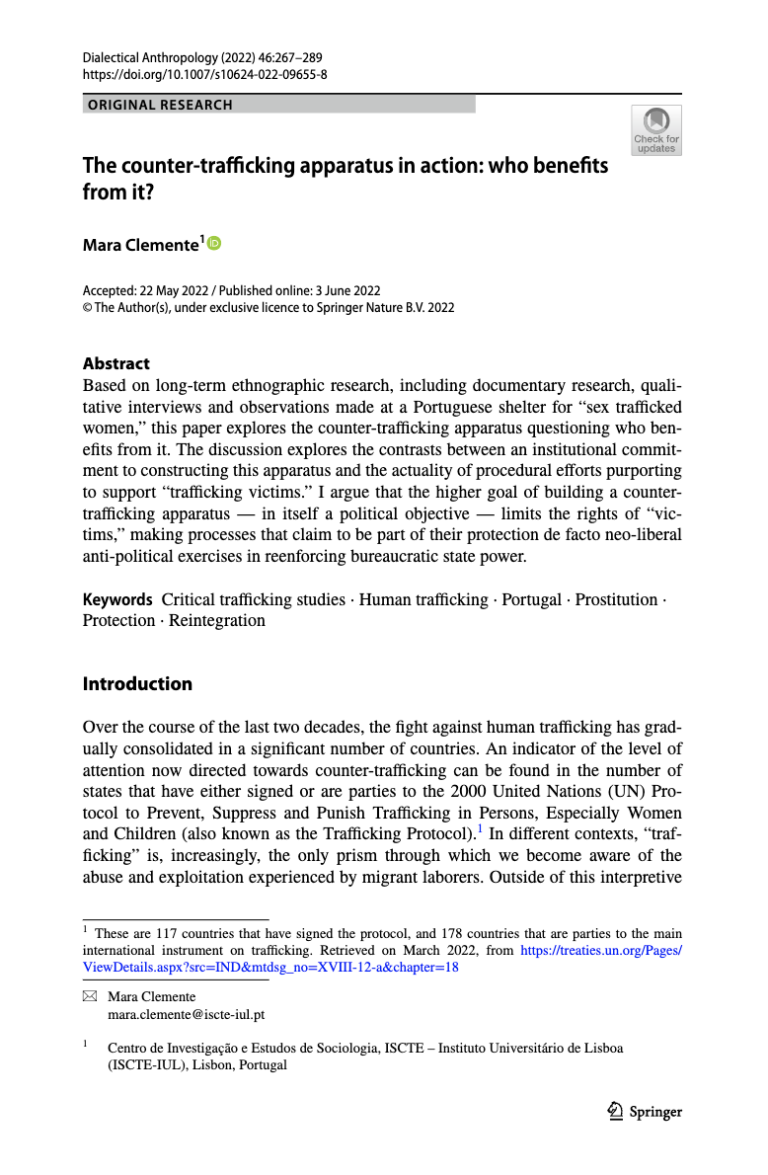Based on long-term ethnographic research, including documentary research, qualitative interviews and observations made at a Portuguese shelter for “sex trafficked women,” this paper explores the counter-trafficking apparatus questioning who benefits from it. The discussion explores the contrasts between an institutional commitment to constructing this apparatus and the actuality of procedural efforts purporting to support “trafficking victims.” The author argues that the higher goal of building a countertrafficking apparatus — in itself a political objective — limits the rights of “victims,” making processes that claim to be part of their protection de facto neo-liberal anti-political exercises in reenforcing bureaucratic state power.

